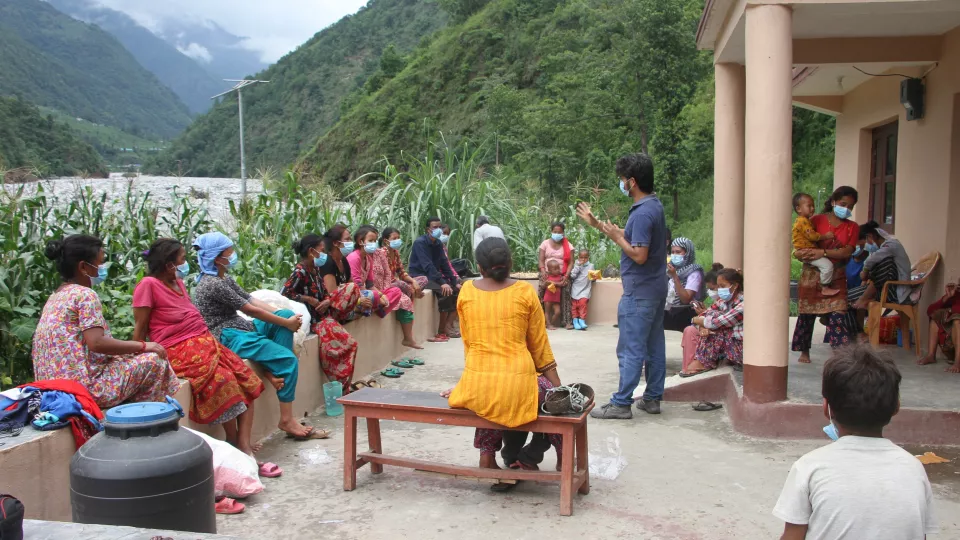
Search

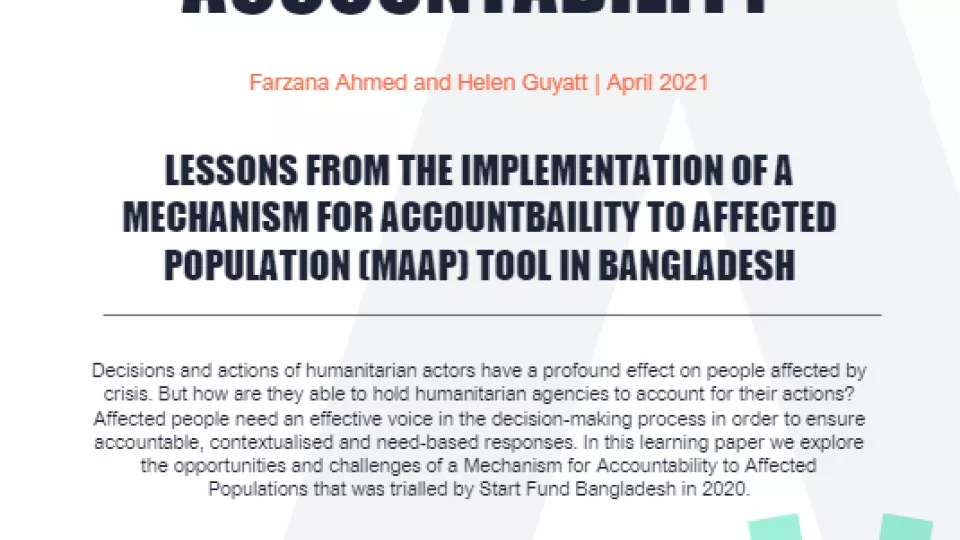
MAAP - A path forward for accountability

Ensuring accountability to communities in rapid response
Start Network's Laura-Louise Fairley discusses a study into the Start Fund and accountability. She finds the study reports on tangible success stories yet argues there is clear room for improvement.

ANNUAL REPORT AND ACCOUNTS 2021
In 2021 Start Network reached 5 million people with emergency humanitarian assistance. The Start Network Annual Report and Accounts 2021, tells the story of how we made progress using five keys to systems change
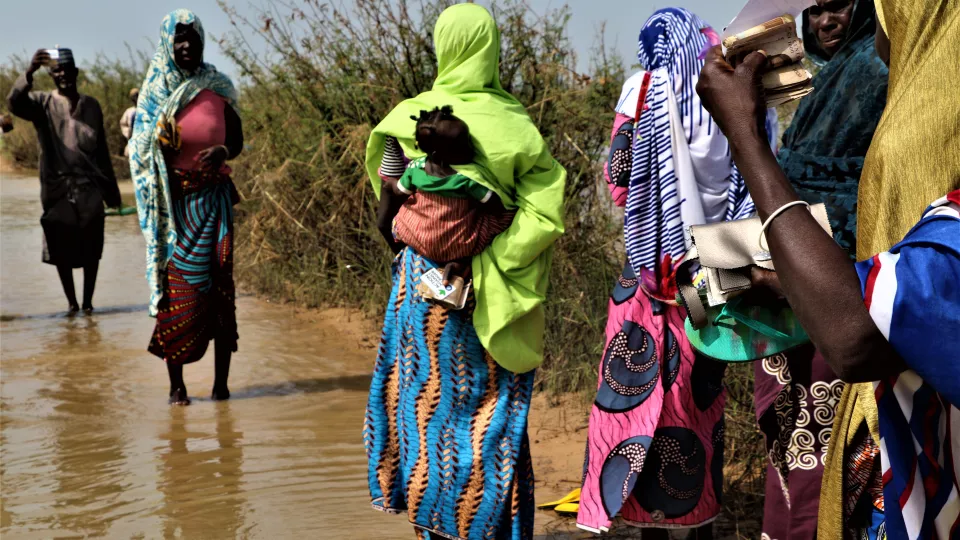
Rethinking Accountability to Affected People
Currently endorsed definitions of accountability to affected people continue to reinforce and be reflective of realities in which humanitarian organisations and donors hold power over crisis affected people...
ACCOUNTABILITY, TRANSPARENCY AND PARTICIPATION
A new series of technical discussion papers by the Start Network, the Red Cross Red Crescent Climate Centre and the International Federation of Red Cross and Red Crescent Societies explores how evolving disaster risk financing (DRF) approaches could be a game changer in acting earlier, quicker and more effectively to predictable humanitarian crises. The papers are attempting to redefine how DRF meets humanitarian objectives. Building on the practical experience of the Start Network and IFRC the papers call for a move from the traditional DRF sovereign approach to a more human-impact driven approach to risk financing, identifying the financial and operational needs from the ground up; an ‘impact before instruments approach.’ Each paper explores the need for such a renewed approach whilst identifying some of the technical challenges and posing solutions to make disaster risk financing work most effectively in the humanitarian context. The aim is to ignite dialogue and build collaboration around key technical challenges whilst highlighting some key solutions to unlock the potential of DRF for humanitarian action.
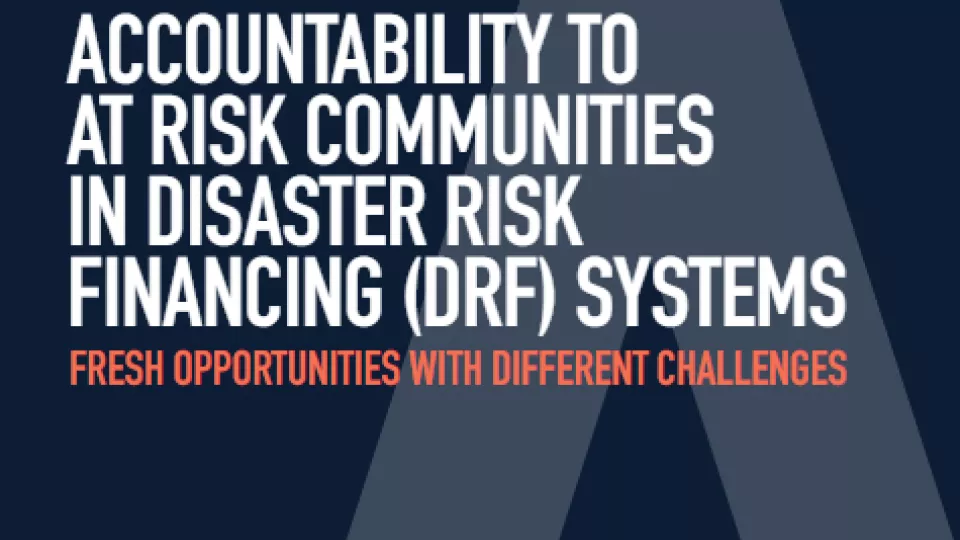
Accountability to Affected Populations in Disaster Risk Financing
This paper explores the new opportunities and challenges for ensuring accountability to affected populations related to disaster risk financing. It draws on Start Network experience in Pakistan, Senegal, Madagascar and Kenya to discuss possible issues and challenges that DRF programming can present for accountability, and steps which can be taken to address these.
RFP | 2024 Annual Report and Accounts
Start Network is seeking a strategic communications agency to produce our 2024 Annual Report and Accounts.
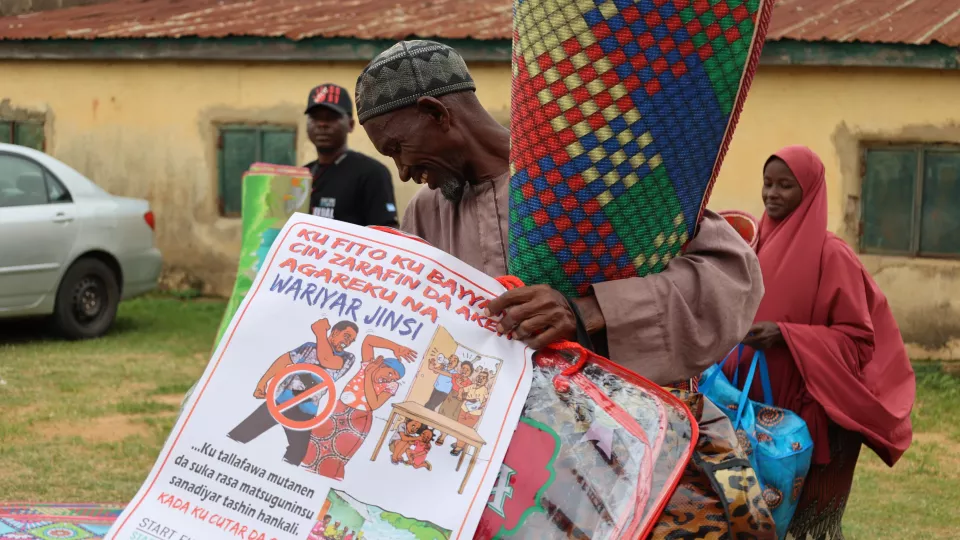
Accountability to Affected Populations: Integrating to Start Funds' processes and programming
For a humanitarian system to be effective and accountable, decision-making power must be in the hands of the people affected by crises.
Start Fund: Learning from Accountability to Crisis-Affected Communities
The study uses the Core Humanitarian Standard on Quality and Accountability (CHS) as a lens to review the extent to which Start funded projects are accountable to disaster-affected populations, and the influence this may have on the quality and relevance of these projects.
